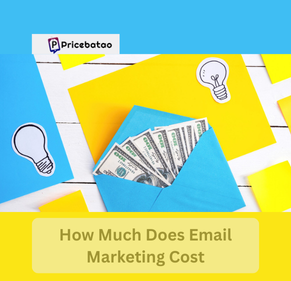Digital Marketing for Small Business is no longer a choice — it’s a necessity. In today’s competitive marketplace, creating an awesome product or service is merely step one; your customers must also be able to find you online. Too many small businesses are hampered by visibility, as they compete with larger brands that have more resources and budget. That’s why digital marketing expertise can make all the difference for small-to-medium-sized businesses (SMBs).
According to research, over 67% of small business leaders believe community support is critical to their survival. The good news? Modern digital marketing tools — once reserved for big corporations — are now affordable and accessible for small businesses. But simply having these tools isn’t enough; the key is learning how to use them effectively to stand out and build lasting customer relationships.
In this guide, we’ll show you what small business digital marketing is all about, the best strategies you can employ, and real-life tips to ensure you can grow even with a limited budget.
What is Small Business Digital Marketing?
Small business digital marketing is the application of online channels and tactics — including social media, search engines, websites, and email — to market products or services and connect with target markets.
Digital marketing for small businesses gives small businesses an affordable means to:
Get in front of more people
Compete with larger brands
Better engage with customers
Drive sales and repeat business
Suppose you own a small local bakery. You may use Instagram and Facebook to post pictures of your yummy offerings, offer special promotions, and connect with your community. You generate more traffic and orders online by doing this, and discover what your customers enjoy most.
The most typical elements of digital marketing for small business are:
Search Engine Optimization (SEO) – to rank higher on Google
- Social Media Marketing – to reach out to your audience
- Email Marketing – to cultivate leads and foster loyalty
- Content Marketing – to educate, motivate, and attract customers
- Search Engine Marketing (SEM) – for targeted paid advertising
How Small Businesses Can Use SEO
SEO is the method of making your website rank higher in search engines and generate more organic traffic. This is among the most important aspects of digital marketing for small business due to the fact that it creates long-term visibility.
This is how to begin:
Keyword Research: Utilize tools such as Google Keyword Planner or Ubersuggest to discover keywords your customers are looking for.
Website Optimization: Use keywords naturally within page titles, meta descriptions, headings, and website copy.
Local SEO: Claim and verify your Google Business Profile with your address, hours, and contact information. Get happy customers to leave reviews.
Backlinks: Acquire links from quality websites by producing shareable content, working with influencers, and adding your business to online directories.
When executed effectively, SEO decreases dependence on paid advertising and builds a consistent flow of potential customers in the long run.
Content Marketing for Small Business
Content marketing is amongst the cheapest means of marketing for small businesses. It’s not about a massive marketing budget — it’s about developing useful and pertinent content that communicates with your audience.
Some content ideas are:
Blog posts that respond to customer queries
Social media posts with advice, promotions, or behind-the-scenes information
Short videos or Reels that highlight your products or services
Infographics that break down complicated data
To be successful, do the following:
- Identify Your Target Audience: Who are they? What are their problems?
- Set Clear Goals: Do you need to generate leads, increase sales, or create brand awareness?
- Audit Your Existing Content: Identify gaps and potential for improvement.
- Select the Right Platforms: Share where your audience is busiest (Facebook, Instagram, LinkedIn, etc.).
- Establish a Content Calendar: Be regular and keep your audience interested.
- Monitor Results: Monitor things like traffic, engagement, and conversions and make your strategy more effective.
Social Media Marketing Tips
Social media is one of the simplest ways to begin digital marketing for small business as it does not need much investment and has an enormous effect.
Select the Right Channels: Pay attention to where your crowd spends time. Instagram and TikTok are suitable for visual businesses, whereas LinkedIn is fantastic for B2B organizations.
Stay Consistent: Post consistently and have a balance of informative, entertaining, and promotional content.
Interact With Followers: Answer comments, messages, and mentions. Ask for user-generated content and develop polls, giveaways, or challenges.
Monitor Performance: Utilize built-in analytics to monitor what succeeds and focus on doubling down on those tactics.
Email Marketing for Small Business
Email marketing assists you in creating a direct relationship with your audience and generating repeat business.
Best Practices:
Grow Your List: Provide discounts, free guides, or special content to entice sign-ups.
Segment Your Audience: Segment subscribers by interests or previous purchases to send individualized messages.
Automate Campaigns: Leverage automation tools to send welcome emails, follow-up communications, and promotions.
Create Engaging Content: Employ attention-grabbing subject lines and clean calls-to-action to increase open and click-through rates.
Measure Results: Monitor open rates, clicks, and conversions to enhance future campaigns.
Measuring Your Success
Monitoring your online marketing efforts lets you know what is working — and what is not.
Key metrics to measure:
Website Traffic: Understand how many visitors you’re receiving and from which locations.
Conversions: Monitor purchases, sign-ups, or form submissions.
Engagement: Track likes, comments, shares, and email opens.
ROI: Track marketing expenses against revenue earned.
Free resources such as Google Analytics and social media reports make it simple to measure performance and make data-informed decisions.
Small business digital marketing is among the most effective methods to expand and compete in today’s digital-first economy. By applying SEO, social media, email, and content strategies, you can draw in additional customers, foster strong connections, and increase sales — all without breaking the bank.
Creativity, consistency, and a flexible attitude are what enable small businesses to differentiate in an overcrowded marketplace and build long-term success.
View Forex Rate and Gold Rate
















